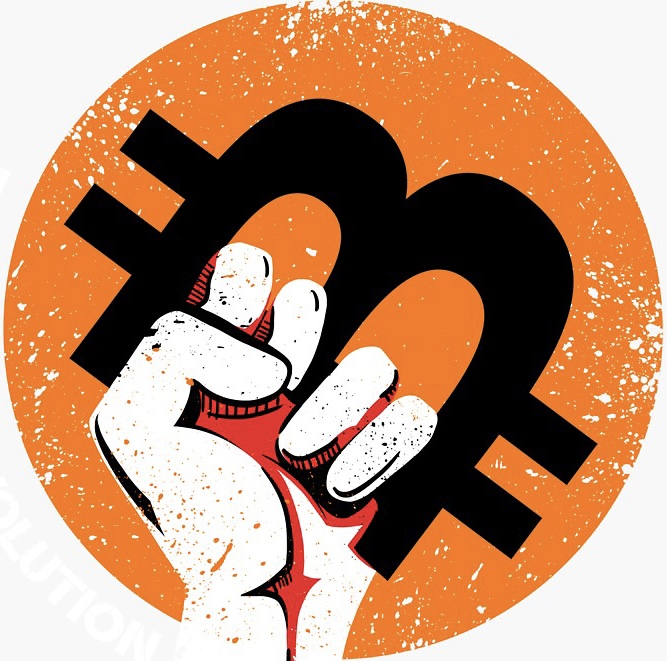The true year of linux is not any specific year or a userbase percentage but when linux is widely preinstalled on consumer hardware without nerds needing to recommend to people to install it themselves
The steamdeck is the first step to that future
In my region (India), for a while, there seemed to be plenty of laptops available with Linux installed as an option. Then again in the last few years that seems to have withered down to almost none, sometimes even if the same model is available with Linux in some other regions. I am not sure what changed. Perhaps some deal with Microsoft. The good part is that the fact that they do support Linux elsewhere on the same laptop configuration generally means its easy to get it up and running yourself even if it does not come pre-installed.
In any case, as an old-timer, it’s very impressive to me how much hardware Linux supports nowadays without any drama at all. Not to mention all the progress made in software especially in supporting Windows-only games, which is truly magical work by the Wine / Proton teams. As far as I am concerned the “Year of Linux Desktop” is here already since I can use it daily without missing absolutely anything at all from Windows.
That was the same in Brazil, where I live. This scared the beejesus out of Microsoft, so they created special, cheaper version for developing countries to counter it.
Steam Deck is the first taste I get of Linux. I’ve always had this fear of not being able to fully utilize a Linux OS due to my lack of skills in coding, but I find myself looking into it more ever since I got a Steam Deck. It may just be the right excuse I need to git gud in coding.
deleted by creator
The only thing I see holding people back is software availability. If it could run adobe and games natively I don’t see why anyone would want to pay for windows.
deleted by creator
Software is definitely at the top of the list in terms of reasons. But the UX/UI definitely leaves something to be desired. I sigh heavily every time an application asks me to edit a text-based config file instead of giving me a GUI. It’s an unnecessary, error-prone process and most importantly I have better things to do than read yet another page of documentation. That doesn’t mean I want the config file to go away, it’s still very useful for a variety of reasons. But I shouldn’t have to mess around with it just to remap keys or other common tasks. Editing a config file should be a last resort for an end user.
You see similar problems when relying on the terminal. I don’t like this idea of the end user being allowed to mess around without a safety net or some sort of guidance.
deleted by creator
deleted by creator
Tbf I am a graphic designer haha.
deleted by creator
deleted by creator
deleted by creator
So… About 2010? When Android phones became widespread.
deleted by creator
The reddit API debacle sent me down a Lemmy, FOSS, Linux, privacy, hacker rabbit hole that I will hopefully and happily never have to leave. My eyes are opened to a better future. I’ll probably be duel booting windows for awhile still to keep up for my job, but I have been able to start transitioning away pretty easily thanks to the hard work of linux desktop devs. I am so grateful for the FOSS community and hope to contribute myself someday.
One of us, one of us ! Proxmox vaultwarden owncloud openmediavault docker-mailserver openwrt syncthing
why syncthing and not nextcloud
Why a screwdriver and not a driver drill?
Mostly vibes
Syncthing seems really good at filesync and backup
Owncloud vs nextcloud
Nextcloud seems just a tad too popular
deleted by creator
I know it’s not a very Linuxy distro, but Linux Mint (Cinnamon) is so easy to use, especially for Windows users. I’ve completely replaced Windows (and with better software), aside from using Windows for a few games that require it. I used Ubuntu, Suse, and Fedora long ago, but for me, Mint takes the proverbial cake.
The nice thing is that you can test out what you like about linux on mint cinnamon.
I installed it to get to know Linux “the soft way” and now love to use the terminal and got to know a buch of underlying concepts and whatnot. And I still use and love mint cinnamon.
A friend installed it and hasn’t configured anything, just uses its GUI and is very happy that way.
So I think the creators really hit the balance of ease of use and possibility to tinker, while ensuring great stability (“it just works”). Big props btw.
I’m a linux user in the past 20years, and used to work with high maintenance / cutting edge distros like arch but grew tired and now use exclusively mint. Very stable, quiet, beautiful ux (tho cinnamon can look more modern).
My favorite is fedora. Ubuntu second. It’s alright but it’s bloated. I have a thing for gnome.
Kde plasma and other kde stuff seems promising too.
Eventually id like to use arch.
error loading comment
I dont think the universe will exist in 2024!(or 6.460263446 E+5814) years
Perhaps. But by then it certainly would be the year of the Linux desktop by then. What other operating system can handle years that long, starting from Jan 1, 1970 to Jan 1, 6.460263446E+5814. Linux, that’s what.
Well what if I install Linux on my “free school Chromebook/Windows laptop/MacBook”?
error loading comment
Ah yes, like last year. And the year before. And …
Isn’t that the joke tho?
I love Linux but I’ve been hearing this song since 2002. I’d love for it to grow bigger but we should stop framing it as the year of Linux.
I’ve been hearing this song since 2002
That’s the joke, my guy. THIS TIME IS REAL!
deleted by creator
At this rate, we’ll be 30% in 300 years!
this stuff is exponential, getting to 0% to 3% is harder than 10% to 30%
Not this year, but the next one
If not, surely the one after that.
Laughs in Linux web server market share.
Android sits on top of linux so linux is already by far the most widely used operating system in the world in consumer devices.
I’d just like to interject for a moment. What you’re refering to as Linux, is in fact, GNU/Linux, or as I’ve recently taken to calling it, GNU plus Linux. Linux is not an operating system unto itself, but rather another free component of a fully functioning GNU system made useful by the GNU corelibs, shell utilities and vital system components comprising a full OS as defined by POSIX.
Many computer users run a modified version of the GNU system every day, without realizing it. Through a peculiar turn of events, the version of GNU which is widely used today is often called Linux, and many of its users are not aware that it is basically the GNU system, developed by the GNU Project.
There really is a Linux, and these people are using it, but it is just a part of the system they use. Linux is the kernel: the program in the system that allocates the machine’s resources to the other programs that you run. The kernel is an essential part of an operating system, but useless by itself; it can only function in the context of a complete operating system. Linux is normally used in combination with the GNU operating system: the whole system is basically GNU with Linux added, or GNU/Linux. All the so-called Linux distributions are really distributions of GNU/Linux!
“I use Linux as my operating system,” I state proudly to the unkempt, bearded man. He swivels around in his desk chair with a devilish gleam in his eyes, ready to mansplain with extreme precision. “Actually”, he says with a grin, "Linux is just the kernel. You use GNU+Linux!’ I don’t miss a beat and reply with a smirk, “I use Alpine, a distro that doesn’t include the GNU Coreutils, or any other GNU code. It’s Linux, but it’s not GNU+Linux.”
The smile quickly drops from the man’s face. His body begins convulsing and he foams at the mouth and drops to the floor with a sickly thud. As he writhes around he screams “I-IT WAS COMPILED WITH GCC! THAT MEANS IT’S STILL GNU!” Coolly, I reply “If windows were compiled with GCC, would that make it GNU?” I interrupt his response with “-and work is being made on the kernel to make it more compiler-agnostic. Even if you were correct, you won’t be for long.”
With a sickly wheeze, the last of the man’s life is ejected from his body. He lies on the floor, cold and limp. I’ve womansplained him to death.
Wow
There are some OS like Alipine Linux that relay on the Linux kernel but don’t use GNU userland.
Alpine uses musl libc + busybox as GNU replacements. They have less code base and they are more lighweight. GNU code is really old and some power users say the code is bloated and poorly maintained.
Maybe next year! :)
Removed by mod
Check out protondb.
Pretty much the only thing you cant play are games with really nasty AntiCheat/DRM.
Everything else, if its not good now? It’ll probably be good in a update or two from proton/GE
Removed by mod
I’ve been playing most of my games on Linux since, well, years. When Valve introduced Proton it made things even easier, and currently I just enable Proton Experimental on Windows games and it just, works…really impressive when you think about it :)
How is the experience with online multiplayer?
I’ve enjoyed using my steamdeck and that OS. Would happily install a desktop variant of SteamOS when available but I mainly play single player games on the deck, I worry I won’t be able to enjoy a number of multiplayer games.
Depends on the game’s anticheat. ProtonDB is a site that tracks Steam Deck (and Linux in general) support for games. You can check what you play to see if it would run on Linux with Proton, the tool Steam uses to run Windows games on Linux. If you want a desktop similar to SteamOS, any distro that supports KDE Plasma will have the same desktop as SteamOS’ desktop mode, with the new Big Picture Mode on Steam being the Steam Deck’s game mode
I’ve dabbled in linux for years but could never break my reliance on windows. I got a Steam deck and realized there was enough compatibility to justify moving to linux. So I just recently gave a flavor of linux called Nobara a shot. It’s by a Red Hat engineer that contributes heavily to getting games working in linux through Proton. My experience has been way better but I wouldn’t say perfect. I think it’s worth checking out to see if it works for you.
deleted by creator
Sound like you are addicted to videogames
Year of the Linux desktop (as my daily driver) has been 2017 for me. Nowadays I dread having to work with Windows.
I like your thinking, I have a dual boot on laptop with windows 11 and LMDE installed, and its been a while since I booted to windows for personal use. Unfortunately for me I am still dependant of windows until Autodesk decides they will create the software I use for the linux environment as well. Until then, I’ll rock on with personal “freedom” of linux, while I’m a slave to the corporate / microsoft
I still have a Windows 10 gaming machine that gets fired up occasionally to be honest. Originally it was a VM on my Linux system, but I had some issues with cache latency and anti-cheat, so I’d figured I need a dedicated system. Nowadays I game as much as possible on my Steam Deck, though. But I think in a year or two I will switch that Windows system over to Linux as well. Gaming on Linux has gotten that good.
deleted by creator
What if we count WSL and Android?
Counting Android is just lying. ChromeOS and WSL are a stretch, but you can make an argument for them.
“3 billion devices run Java”
Linux kernel is Linux kernel. Few desktops run Android, though.
deleted by creator
Linux market share is not the same as Grub market share. Torvalds is against the GPL v3 because he explicitly does not mind locked bootloaders and signed kernels.
deleted by creator
deleted by creator
I have been using Linux on desktop full time since 2017 so this is really cool to see the populairty growth.
















